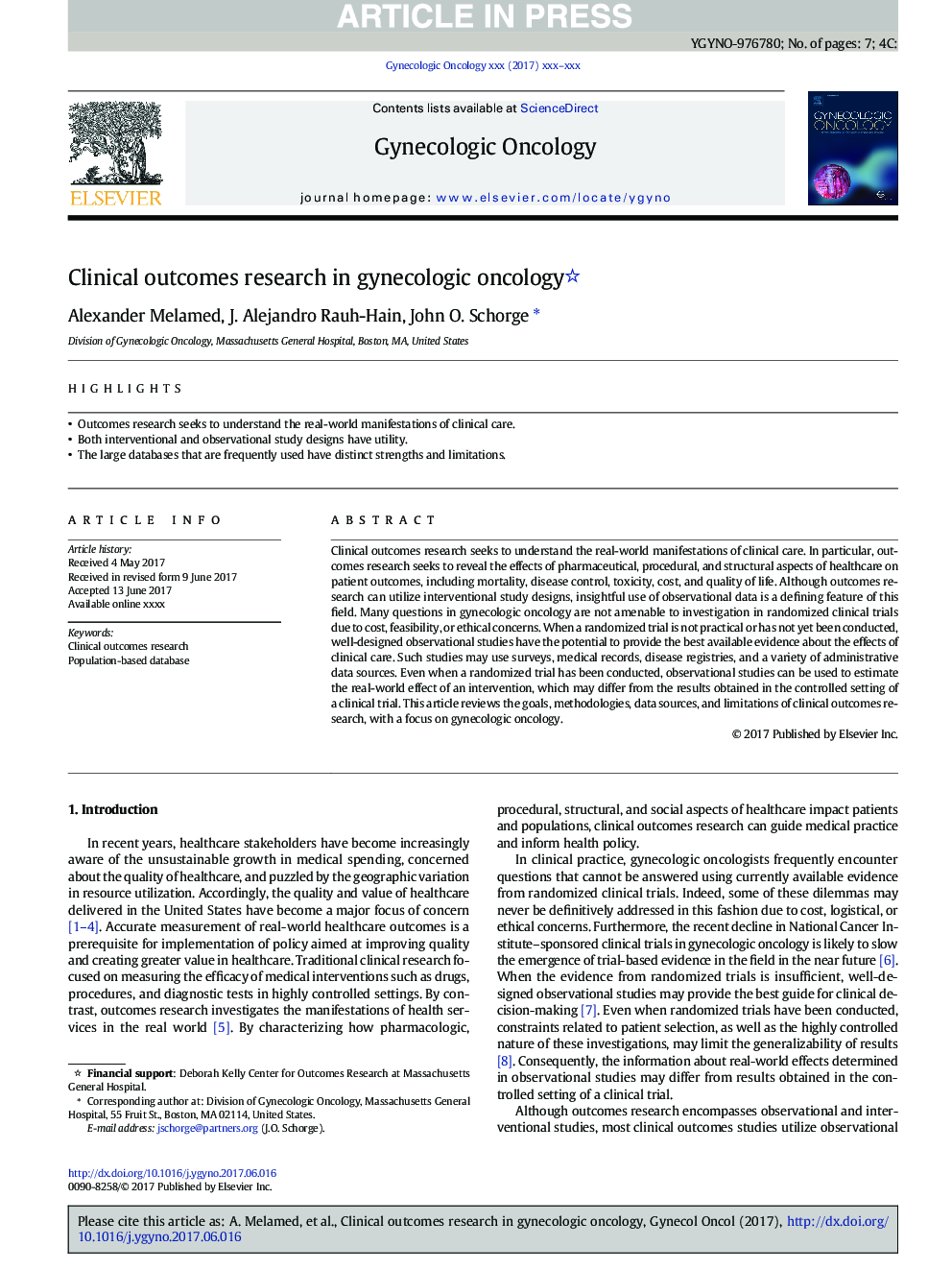| Article ID | Journal | Published Year | Pages | File Type |
|---|---|---|---|---|
| 5695392 | Gynecologic Oncology | 2017 | 7 Pages |
Abstract
Clinical outcomes research seeks to understand the real-world manifestations of clinical care. In particular, outcomes research seeks to reveal the effects of pharmaceutical, procedural, and structural aspects of healthcare on patient outcomes, including mortality, disease control, toxicity, cost, and quality of life. Although outcomes research can utilize interventional study designs, insightful use of observational data is a defining feature of this field. Many questions in gynecologic oncology are not amenable to investigation in randomized clinical trials due to cost, feasibility, or ethical concerns. When a randomized trial is not practical or has not yet been conducted, well-designed observational studies have the potential to provide the best available evidence about the effects of clinical care. Such studies may use surveys, medical records, disease registries, and a variety of administrative data sources. Even when a randomized trial has been conducted, observational studies can be used to estimate the real-world effect of an intervention, which may differ from the results obtained in the controlled setting of a clinical trial. This article reviews the goals, methodologies, data sources, and limitations of clinical outcomes research, with a focus on gynecologic oncology.
Related Topics
Health Sciences
Medicine and Dentistry
Obstetrics, Gynecology and Women's Health
Authors
Alexander Melamed, J. Alejandro Rauh-Hain, John O. Schorge,
